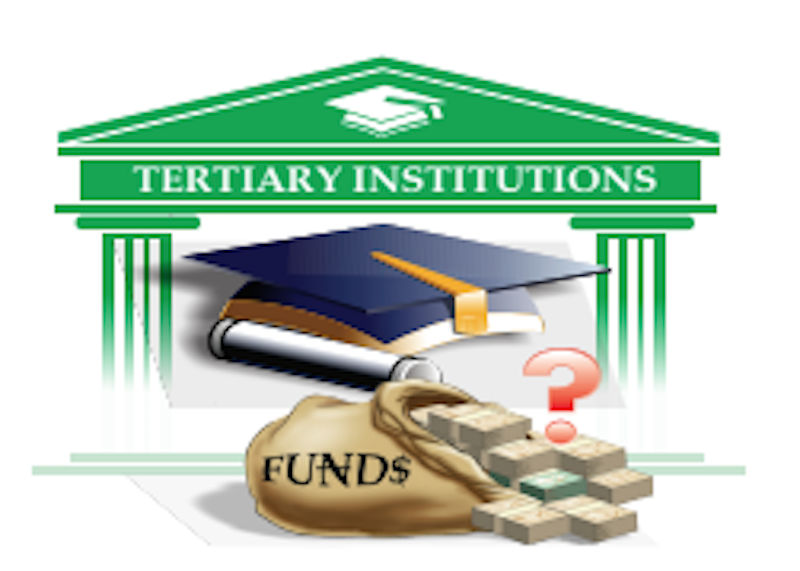
By: Emmanuel Utibe
On Thursday, June 20, 2024, it became news again that the federal government was considering inviting foreign investors into Nigeria’s tertiary institutions. This was made known during the Federal Civil Service Week where the Honourable Minister of Education, Prof Tahir Mamman stated that the move aims to diversify ownership beyond the traditional federal government control to include private, state, and international stakeholders. He said that opening these institutions to global investment would enhance educational quality, infrastructure, and innovation that will position Nigeria as a hub for academic excellence in Africa.
Expectedly, when the news started to trickle out into the public it generated heated discussions but the same old recurring narratives from over the years were seen — The old bumbling academic administrators, whose only cry has been the need to increase the price of education to cover for the lack of funding from the government, were collectively happy by the news, as even though they had been educated at the same ridiculously low cost in the “60s and “70s, they felt validated that their dysfunctional prophecies were finally materializing.
On the other hand, students unions in their discussions were displeased as it signalled what they too had foreseen when federal tertiary institutions would by cost finally be taken away from the reach of the common men. They had always called out the government on its lackadaisical handling of federal tertiary institutions and felt vilified that the government would further want to shy away from its constitutional enjoinment.
A common denomination to both side’s reactions is the acknowledgement of the government’s failings in the educational sector as a whole. In this article, as a concerned party to the discussion and the consequences of government decisions, we will be looking into it today.
The failings of the government
Now, some persons quickly point out that the right to education is not listed in chapter IV of the 1999 constitution as amended, as a fundamental human right of Nigerian citizens and so to them, the government is not mandated to the people to provide education. This though is a myopic view as section 18, chapter II of the Nigerian constitution, the chapter which is titled, “The Fundamental Objectives and Directive Principles of State Policy” provides that the government: directs its policy towards ensuring that there are equal and adequate educational opportunities at all levels, promote science and technology, and strive to eradicate illiteracy and when practicable provide free, compulsory and universal primary education, free university education and free adult literacy programme.
While the above-mentioned section is non-justiciable i.e. a citizen can’t sue the government in court for not providing free primary education to his village and thus depriving him of his right to be educated, it still invariably places a constitutional obligation on the government to that effect. This is further amplified by several international conventions to which Nigeria is a party including the Universal Declaration of Human Rights 1948, the International Covenant on Economic, Social and Cultural Rights 1966, Convention on the Rights of the Child 1989 amongst others, which all acknowledge the right of a human being to education and also speaks on the government making higher education “equally accessible to all on the basis of merit.”
It is in light of this that we speak of the failings of government towards the education sector as a whole. Once upon a time, government-owned primary schools were revered for good education delivery and private schools were just a dessert on the menu. As time went by, the government forsook the primary institutions and they soon became a symbol of reproach among the populace. The same story goes for the federal and state-owned secondary schools which were once revered as symbols of educational excellence with the common entrance examination for example being a very competitive and widely taken examination as all wanted their children to get into these schools. Now secondary institutions are reduced to no less than second and third-choice options for people who can’t afford to go to the better and more expensive private schools and that is even being taken away as the cost keeps rising while the standard of living persistently remains on the decline. It is overwhelmingly clear that the turn of the tertiary institutions to dance to the evil drums of the government’s reluctance to properly invest in education had nearly reached its culmination.
Remedying the evils
A well-known saying goes that: the best time to have planted a tree was yesterday, the second-best time is now and the single worst time is tomorrow. As a member of the fourth estate of the most concerned constituency, it is imperative that we strongly lend our voice to condemn the shortcomings of the government.
As we all know, Nigeria as a country holds large potential in terms of her human capital due to the sheer number of her citizens and also the age distribution with most of the population being younger than 35 years of age and the median age of 18.1 years. While the above is true, Nigeria’s human capital would continually be just talked about in terms of potential if they are not properly developed. One of the single biggest developments for human capital is education and this is why several international conventions go ahead to recognize education as a human right.
And so it is thus deplorable to watch how progressively over the years, not only has the government turned from its constitutional and rightful obligation of ensuring somewhat equal access to education to all and instead not only driven down the quality of this education but has continually driven up the cost and thus deprive equal access for those who do not have economic means to which constitute a huge chunk of the Nigerian people, a people where over 60% are multi-dimensionally poor. This is as corrupt individuals who have reduced Nigeria to a jamboree of deplorable nonsensicality, steal away at public funds with reckless abandon, budgeting for their looting and even allocating billions to wrong ministries for projects which they hope not to execute but still pocket the money. This is also as these same politicians after doing all these turn to the citizenry to tell us that there is not enough money to provide the social services which the government is constitutionally mandated to.
So, at this point, we are going to go ahead to implore the president who, even though not visibly acting it, must want the good of Nigeria as a nation under his tenure as her democratic president. We implore him to stop the charade of speaking about the inability of the government to cover for things that are essential for the good and development of the country. The feeding of the president and other political officers which is budgeted for, their cars, wardrobe, their one zillion and one allowance are things which have no bearing on the economic development of Nigeria, and yet year in, year out, they are unfailingly budgeted for, to the tune of billions of Naira and are unfailingly paid for. This is something that happens at all levels of government both for the executive and legislative arm of government. It should be concerning that the government’s inaction is wanting to breed instability in the tertiary education system as it has further produced more points of clash between the student populace and the various school management as even can be seen in the recent University of Benin electricity issue which lead to a temporary closure of the school.
The facade of setting up a loan scheme as an answer to the government’s unwillingness to truly fund education is also laughable because while it is a good initiative for political optics and a way to be seen addressing the problems, it is still beside what needs to be done. Rather than pumping the money into a loan scheme that might ruin the situation by promoting indebtedness in people who also after leaving school would be faced with another government failure, the high unemployment rate readily, that money can be rightly directed into these institutions.
In conclusion, we acknowledge bodies like ASUU, NASU, and SSANU which foresaw this decline and have been hampering the government to stop it before it crumbles the public federal tertiary institutions and we encourage us all to stand united in the struggle against the government’s unwillingness to take action. We call on students’ bodies most especially the various SUs and NANS to as a matter of urgency turn their attention too, to enjoining the government that we as students would not sit for a government that would not want to play the role of an absentee father and abscond from its constitutional responsibility towards education and other social services. We must realise that if indeed we would be the leaders of tomorrow, we must make sure to demand the security of that tomorrow from the leaders of today. We speak to the good conscience of the government of the day which we believe they still have and enjoin them to rethink their actions and commitments.


